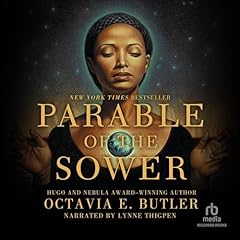
Nothing to Envy
Ordinary Lives in North Korea
Failed to add items
Add to Cart failed.
Add to Wish List failed.
Remove from wishlist failed.
Adding to library failed
Follow podcast failed
Unfollow podcast failed
 Prime members: New to Audible?
Prime members: New to Audible?Get 2 free audiobooks during trial.
Buy for $22.03
-
Narrated by:
-
Karen White
-
By:
-
Barbara Demick
Barbara Demick's Nothing to Envy follows the lives of six North Koreans over 15 years - a chaotic period that saw the death of Kim Il-sung and the unchallenged rise to power of his son, Kim Jong-il, and the devastation of a far-ranging famine that killed one-fifth of the population.
Taking us into a landscape never before seen, Demick brings to life what it means to be an average Korean citizen, living under the most repressive totalitarian regime today - an Orwellian world in which radio and television dials are welded to the one government station, a country that is by choice not connected to the Internet, a society in which outward displays of affection are punished, and a police state that rewards informants and where an offhanded remark can send a citizen to the gulag for life. Demick's subjects - a middle-aged party loyalist and her rebellious daughter, an idealistic female doctor, an orphan, and two young lovers - all hail from the same provincial city in the farthest-flung northern reaches of the country. One by one, we witness the moments of revelation, when each realizes that they have been betrayed by the Fatherland and that their suffering is not a global condition but is uniquely theirs.
Nothing to Envy is the first book about North Korea to go deep inside the country, beyond the reach of government censors, and penetrate the mind-set of the average citizen. It is a groundbreaking and essential addition to the literature of totalitarianism.
©2010 Barbara Demick (P)2009 TantorListeners also enjoyed...




















Critic reviews
People who viewed this also viewed...


















I wanted more!
Something went wrong. Please try again in a few minutes.
Karen White's audio narration is especially noteworthy - obvious that she made an extra effort to pronounce Korean words correctly.
Highly recommended!
I don't often give five stars
Something went wrong. Please try again in a few minutes.
At times, the story is very touching - you learn of people who really believed in the regime only to lose everything. At times, the story is heart breaking as you hear about parents losing children and children losing parents - and how these loses play out over time. Who knew, for example, that there are large bands of orphan children roaming around N Korea. There is no sugar coating these stories. Even life in S Korea isn't always a reprieve - and it is interesting to learn how many refuges have trouble adjusting to their new lives. Parallels with East/West Germans and the type of problems S Korea might face if there is reunification with N Korea are insightful. I highly recommend this book.
Although the narrator has been criticized, I think this is unfair. In my opinion, her style fit the documentary style of the book and allowed the drama inherent in the lives of the characters to carry the story.
Stranger Than Fiction - and More Interesting
Something went wrong. Please try again in a few minutes.
However it's all the stuff that isn't in the intro or epilogue that you'll care about and that part of the book is beyond fascinating.
The reader does a an OK job, if I could I'd give her 3.5 stars but that's not an option and 3 stars would be unfair.
If you have even the mildest interest in the subject give this book a read -- and don't be scared away thinking it's a chick flick book -- it's not. It's a great look at life in North Korea.
Great read
Something went wrong. Please try again in a few minutes.
This is not just Mi-Ran's story but the narrative of many escapees from the horrors of North Korea. Based on incredible testimonies from lived events, this would read as fiction if it weren't so sad and real. The stories go deep into not only the drama but the many unexpected facts of life of the people that live through it. Interestingly enough, North Korea seems unique in its flavor of totalitarism in ways that make the book a must-read for anyone with some interest in international matters.
A must-read!
Something went wrong. Please try again in a few minutes.


